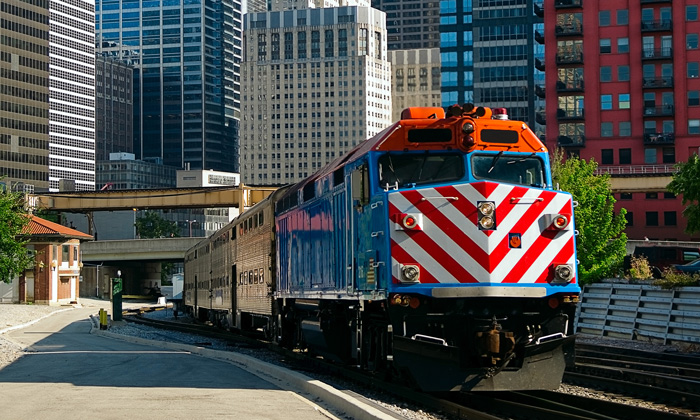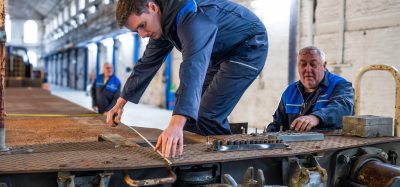Chicago’s Metra to replace its aging fleet of engines
Posted: 8 January 2018 | Global Railway Review | No comments yet
Metra has issued a request for proposals (RFP) to begin to replace its aging fleet of engines with new or remanufactured locomotives…


The locomotive RFP calls for a base order of at least 12 new or 15 remanufactured locomotives with options for up to 30 additional new or 27 additional remanufactured. Equalling to a total of up to 42 new or remanufactured locomotives, Metra is asking for proposals for both so they can weigh the costs and benefits against either one.
Metra currently has about $125 million programmed for locomotive purchases over the next five years. The Board of Directors has asked staff to consider financing alternatives, such as leasing, to maximise the efficient use of available capital resources.
The 2014 modernisation plan called for the purchase of 367 railcars and 52 locomotives. That 10-year plan, however, counted on Metra receiving $1.3 billion in new funding, which has not come through. Until it does, Metra is attempting to acquire as many cars and engines as possible with existing funding but unfortunately, it falls far short of Metra’s needs. The RTA estimated $1.2 billion a year for 10 years is needed to achieve and maintain a state of good repair on the system, including buying new cars and engines but also replacing and upgrading bridges, stations and other infrastructure. This year, Metra has one-sixth of that amount available.
“We are trying to do the best we can with available resources,” said Metra CEO and Executive Director Jim Derwinski. “Clearly, however, we need more capital dollars to continue to invest in our system and upgrade our assets.”
Metra expects to award the contract for locomotives later in 2018, with delivery in 2020. The new or remanufactured locomotives will allow outdated diesel locomotives to be replaced with modern, cleaner-burning engines; significantly improving air quality.
Metra also issued an RFP in April 2017, for at least 25 new railcars, and is currently evaluating responses, with a goal of approving a contract later in 2018. The delivery of the first cars will be part of the negotiations and dependent upon the manufacturer’s capacity to build. The last time Metra received new railcars for lines, other than the Metra Electric, was in 2006.
Due to the age of its current fleet averaging at 30 years, Metra has identified modernisation of rolling stock as one of its highest capital priorities, especially as the condition of cars and locomotives is essential to providing quality, reliable and comfortable service.
OUT NOW: The Definitive Guide to Rail’s Digital Future
The rail industry is undergoing a digital revolution, and you need to be ready. We have released our latest market report, “Track Insight: Digitalisation.”
This is not just another report; it’s your comprehensive guide to understanding and leveraging the profound technological shifts reshaping our industry. We move beyond the buzzwords to show you the tangible realities of AI, IoT, and advanced data analytics in rail.
Discover how to:
- Optimise operations and maintenance with real-time insights.
- Enhance passenger services through seamless, high-speed connectivity.
- Leverage technologies like LEO satellites to improve safety and efficiency.
Featuring expert analysis from leaders at Nomad Digital, Lucchini RS, Bentley Systems and more, this is a must-read for any rail professional.
Related topics
Regulation & Legislation, Rolling Stock Maintenance, Rolling Stock Orders/Developments







